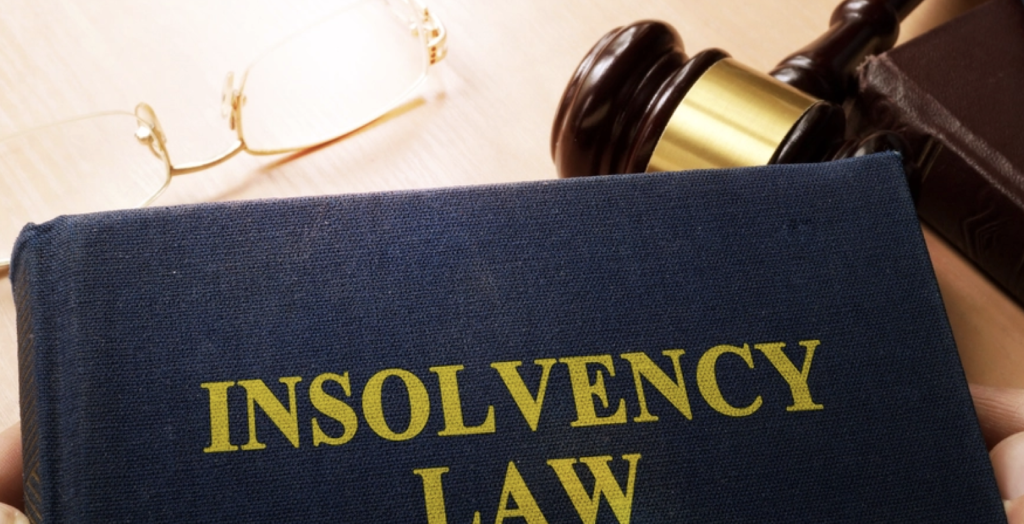Facts About Insolvency Practitioner Revealed
Facts About Insolvency Practitioner Revealed
Blog Article
Indicators on Insolvency Practitioner You Should Know
Table of ContentsAn Unbiased View of Insolvency PractitionerOur Insolvency Practitioner PDFsThe Ultimate Guide To Insolvency PractitionerInsolvency Practitioner Things To Know Before You Get ThisSome Of Insolvency PractitionerUnknown Facts About Insolvency PractitionerThe Definitive Guide for Insolvency Practitioner
Bankruptcy is when liabilities are better than the worth of the firm, or when a debtor can not pay the financial obligations they owe. A company can come to be financially troubled as a result of a number of situations that cause bad cash circulation. When faced with bankruptcy, an organization or individual can call lenders directly and restructure financial obligations to pay them off.
Company owners might get in touch with creditors straight and restructure financial debts into more workable installments. Financial institutions are typically responsive to this method because they desire to be paid off and avoid losses, also if the settlement is on a postponed schedule.
The proprietor produces a proposal describing how the financial debt may be reorganized using expense decreases or other plans for assistance. The proposal reveals creditors exactly how business might generate sufficient cash circulation for profitable operations while paying its financial obligations. Generally, a forgiven debt may be considered earnings by the Internal Revenue Solution (IRS).
Some Known Details About Insolvency Practitioner
When a business has to pay enhanced rates for items and services, the company passes along the cost to the customer. Rather than pay the increased price, numerous consumers take their service elsewhere so they can pay much less for a product and services. Losing clients causes losing income for paying the firm's creditors.
When operations cease, so does the firm's earnings. Some firms come to be financially troubled due to the fact that their products or services do not develop to fit customers' changing demands.
What Does Insolvency Practitioner Do?
Expenses go beyond incomes and costs stay unsettled. Types of insolvency consist of cash-flow bankruptcy and balance-sheet insolvency. Cash-flow insolvency occurs when a company has the possessions to cover their financial obligations but they remain in the wrong type, such as property instead of liquid funds. Balance-sheet bankruptcy, on the other hand, shows a lack of possessions in any kind of kind to cover debts.
The IRS states that a person is bankrupt when the total responsibilities surpass total properties. Insolvency Practitioner. A insolvency, on the other hand, is an actual court order that portrays just how an insolvent individual or service will repay their financial institutions, or exactly how they will offer their assets in order here are the findings to make the settlements
Everything about Insolvency Practitioner
When a company or individual is insolvent, they can not meet their financial commitments. Bankruptcy is not the very same as bankruptcy, although a firm that has become bankrupt may submit for personal bankruptcy. Insolvency is the state of not being able to pay your commitments while insolvency is a lawful process to release your financial obligations.
Comprehending the factors that can bring about insolvency, such as overspending, can assist you prevent bankruptcy and its effects.
The 7-Minute Rule for Insolvency Practitioner
It is popular that supervisors and policemans of companies (and supervisors of restricted responsibility companies) owe fiduciary tasks to their companies and their shareholders (or members). These fiduciary obligations are specified by state statutes and, though there are variants from state to state, they commonly include a responsibility of loyalty and a responsibility of treatment.
The duty of care you could try here needs supervisors and police officers to work out persistance, to make enlightened choices, and to act in good faith so that their actions are in the ideal rate of interest of the business. Beyond the scope of this discussion, some states allow these duties to be restricted either by so noting in the organizational records or abiding with various other requirements.
The Ultimate Guide To Insolvency Practitioner

Take care about giving shareholders favoritism at the expenditure of financial institutions (e.g., authorizing and moneying a returns or a stock redemption). Take care concerning favoritism between classes of investors. Clear up efforts to learn all the truths before taking a certain strategy; directors must really believe that any decisions made are in the ideal passions of the company in its whole (i.e., choices will certainly be assessed in knowledge due to the result of such activities on the company).
In any type of bankruptcy or bankruptcy proceeding, settlements made to certain lenders at the expense of various other financial institutions can be clawed back, especially if there is some link in between the company and the financial institution. Think about proposing at an annual shareholder meeting (or any various other meeting of investors) a resolution affirming that all prior organization decisions and activities taken by the supervisors and officers of the firm were absorbed great faith after a workout of reasonable care.
Some Known Facts About Insolvency Practitioner.
Completely divulge any type of individual or service relationships with parties beyond of transactions including the firm to stay clear of the appearance of a problem of passion. In assessing possible fund official site raising deals or a sale of properties of the struggling company, realize that these transactions may be inspected later taking into account any subsequent development of directors' fiduciary responsibilities to consist of financial institutions.
Report this page